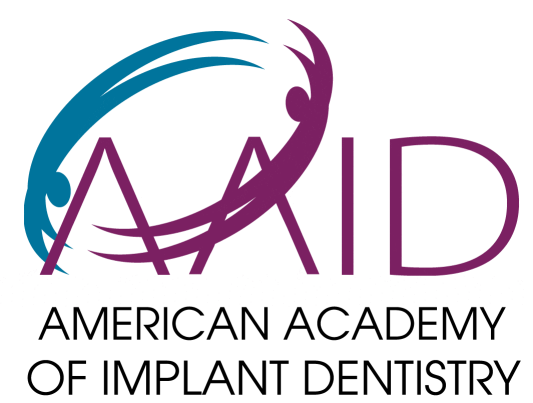How pH affects oral health, and why does this simple measurement have such profound implications for your teeth and gums? The pH level of your mouth represents one of the most critical yet frequently overlooked factors in maintaining optimal dental health. At Lansdowne Family Dental, we regularly educate patients about the vital connection between oral pH balance and their risk for tooth decay, gum disease, and other dental complications that can significantly impact their quality of life.
Understanding the delicate chemical environment within your mouth is essential for preventing dental problems before they start. Your oral pH fluctuates throughout the day based on what you eat, drink, and even your body’s natural processes, creating either protective conditions that strengthen your teeth or acidic environments that promote decay and disease.
In this comprehensive scientific exploration, we’ll examine the fundamental role of pH in oral health and disease prevention, explore how different foods, beverages, and lifestyle factors influence your mouth’s pH levels, discuss the connection between acidic conditions and tooth decay development, outline practical strategies for maintaining optimal oral pH balance, and provide you with evidence-based methods to protect your teeth and gums through proper pH management and preventive care.
What is the pH of The Mouth? The Basics of pH and Its Measurement
pH stands for ‘potential of hydrogen’ and represents the concentration of hydrogen ions in a solution. The pH scale ranges from 0 to 14, with 7 being neutral. Values below 7 indicate acidity, while those above 7 denote alkalinity. In the oral cavity, the pH is typically maintained near neutrality, between 6.7 to 7.3, primarily due to the buffering action of saliva.
For residents of Ashburn, Leesburg, and Lansdowne, VA, choose Lansdowne Family Dental for quality dental care. We offer various dental services with a patient-centric approach. Start your dental journey with us. Contact us!

Saliva: The Unsung Hero in pH Regulation
Saliva plays a pivotal role in maintaining the pH balance in the mouth. It achieves this through two primary mechanisms:
- Buffering Capacity: Saliva contains bicarbonate ions that neutralize acids, preventing drastic pH fluctuations.
- Remineralization: Saliva supplies essential minerals like calcium and phosphate to the teeth, aiding in the repair of early stages of tooth decay.
Factors Influencing Oral pH
Several factors can influence the pH of the mouth, including:
- Diet: Consuming acidic foods and beverages can lower oral pH. Frequent snacking, especially on sugary foods, can also lead to prolonged periods of acidity.
- Oral Hygiene Practices: Regular brushing and flossing help remove food particles and plaque, which can produce acids when they break down sugars.
- Medical Conditions: Conditions like xerostomia (dry mouth) can decrease oral pH, increasing the risk of plaque formation and dental caries.
- Medications: Some medications can reduce saliva flow, affecting its buffering capacity.
The Link Between pH and Dental Diseases
A consistent imbalance in oral pH can lead to various dental issues:
- Dental Caries (Tooth Decay): A drop in pH can demineralize the tooth enamel, making it susceptible to decay.
- Gingivitis and Periodontitis: An acidic environment can promote the growth of harmful bacteria, leading to gum diseases.
- Tooth Erosion: Chronic exposure to acidic foods and drinks can erode the tooth enamel, leading to sensitivity and discoloration.
How to Restore PH Balance in Mouth?
To ensure a balanced oral pH:
- Limit Acidic Foods and Drinks: Minimize the consumption of sodas, citrus fruits, and other acidic items.
- Practice Good Oral Hygiene: Brush twice a day with fluoride toothpaste and floss regularly.
- Stay Hydrated: Drinking water helps neutralize acids and wash away food particles.
- Chew Sugar-free Gum: Chewing stimulates saliva production, which can help neutralize acids.
- Regular Dental Check-ups: Visit your dentist regularly for cleanings and to address any potential issues early on.
In Conclusion
The role of pH in oral health is profound. By understanding its significance and taking proactive measures, one can ensure a healthy oral environment. Remember, a balanced pH is not just about preventing dental diseases; it’s about promoting overall oral health and well-being.
FAQs
- Why is a balanced pH important for oral health? A balanced pH ensures a healthy balance of good and bad bacteria in the mouth, preventing dental diseases.
- How does saliva help in pH regulation? Saliva neutralizes acids through its buffering capacity and supplies essential minerals to the teeth for remineralization.
- Can medications affect oral pH? Yes, some medications can reduce saliva flow, impacting its ability to regulate pH.
- How can I test my oral pH? There are pH testing kits available that can help determine the pH of your saliva.
- Does drinking water help in maintaining oral pH? Yes, drinking water helps neutralize acids and wash away food particles, aiding in pH balance.
- Are there any treatments for restoring pH balance? While there’s no direct treatment, following the recommended practices can help maintain a healthy oral pH.






